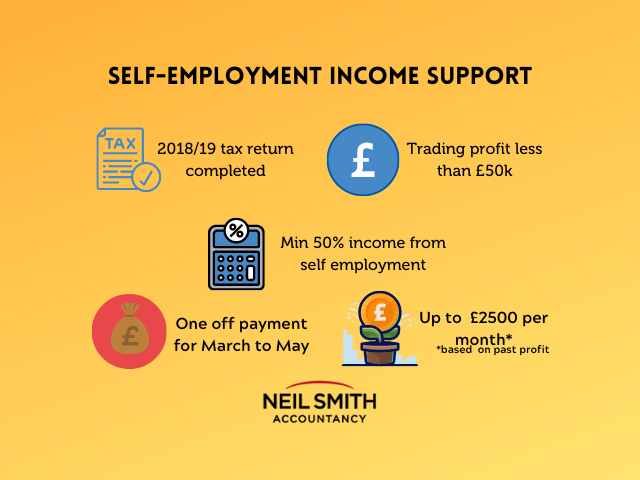Update 25th September 2020: Read about the extension to the Self Employed Income Support Scheme announced by the government.
Following the recent announcement of the Job Retention Scheme, pressure has been on for the treasury to provide a support package for self employed individuals that are also feeling the pressures of the Coronavirus pandemic. UK Chancellor of the Exchequer, Rishi Sunak, has finally announced the development of a grant scheme that offers comparable financial support to the measures that are already in place for employed individuals.
Government support for the self employed
The Self Employed Income Support Scheme (SEISS) will provide cash grants to self employed individuals. Eligible individuals will be identified by HMRC, who will contact them with the full details of the scheme and information about how to apply. The current expectation is that they will need to complete and return a claim form, upon receipt of which HMRC will pay out a single lump sum payment consisting of three monthly grants to cover March, April and May.
Who qualifies for the Self Employed Income Support Scheme?
In terms of eligibility criteria, what we currently know is this:
- The individual’s income must not have exceeded £50,000 trading profits in 2018/19. If they are excluded based on this figure, then HMRC will look at the figures for the tax years 2016/17 and 2017/18 and work out the average trading profit. This is calculated by adding up the total profits and losses for all three tax years, then dividing that number by three.
- At least half of the individual’s income must be derived from self employment.
- A tax return for 2018/19 needs to have been submitted.
Where otherwise qualifying individuals are late with their 2018/19 tax return, they have an extra four weeks from 26th March 2020 to file their return and still be able to benefit from SEISS. If tax returns covering the past three years are unavailable, HMRC will take the average of the returns that have been submitted. Individuals who first became self employed after 5th April 2019 will unfortunately be unable to claim.
How will SEISS grants be worked out?
The grants will be calculated using tax records spanning over the last three financial years. The amount will be decided by taking the average trading profits (as described above) and dividing it by twelve to get a monthly average. This is then multiplied by three to get the total for the three month period. The grant will be 80% of that figure, capped at a maximum of £2500 per month. The maximum grant available is therefore £7500.
What next for those in self employment?
Since it is a grant and not a loan it will not need to be repaid. It does however constitute taxable income and so normal income tax and self-employed National Insurance rules will apply. SEISS will initially be covering just the three stated months, with Sunak stating that there is the possibility of this scheme being extended if required. The Chancellor also offered his reassurance that work is underway on building the systems and processes needed to deal with this scheme. It is expected that they should be set up to begin making payments in June 2020.
With the current economic uncertainty, grants and loans available from the government, and upcoming tax changes, having a professional accountant to guide you the financial obligations and pitfalls ahead of you can be a comfort. It could also stop you receiving penalties or missing out on schemes and grants. Whether you’re self employed, a new start up enterprise or a long established company, Neil Smith Accountancy can help you to maximise your tax efficiency and guide you through the financial morass. Get in touch for first class accountancy services and business advice.


